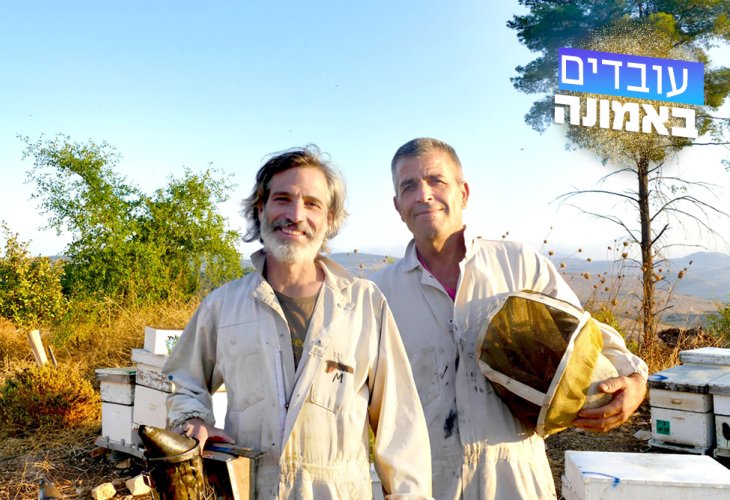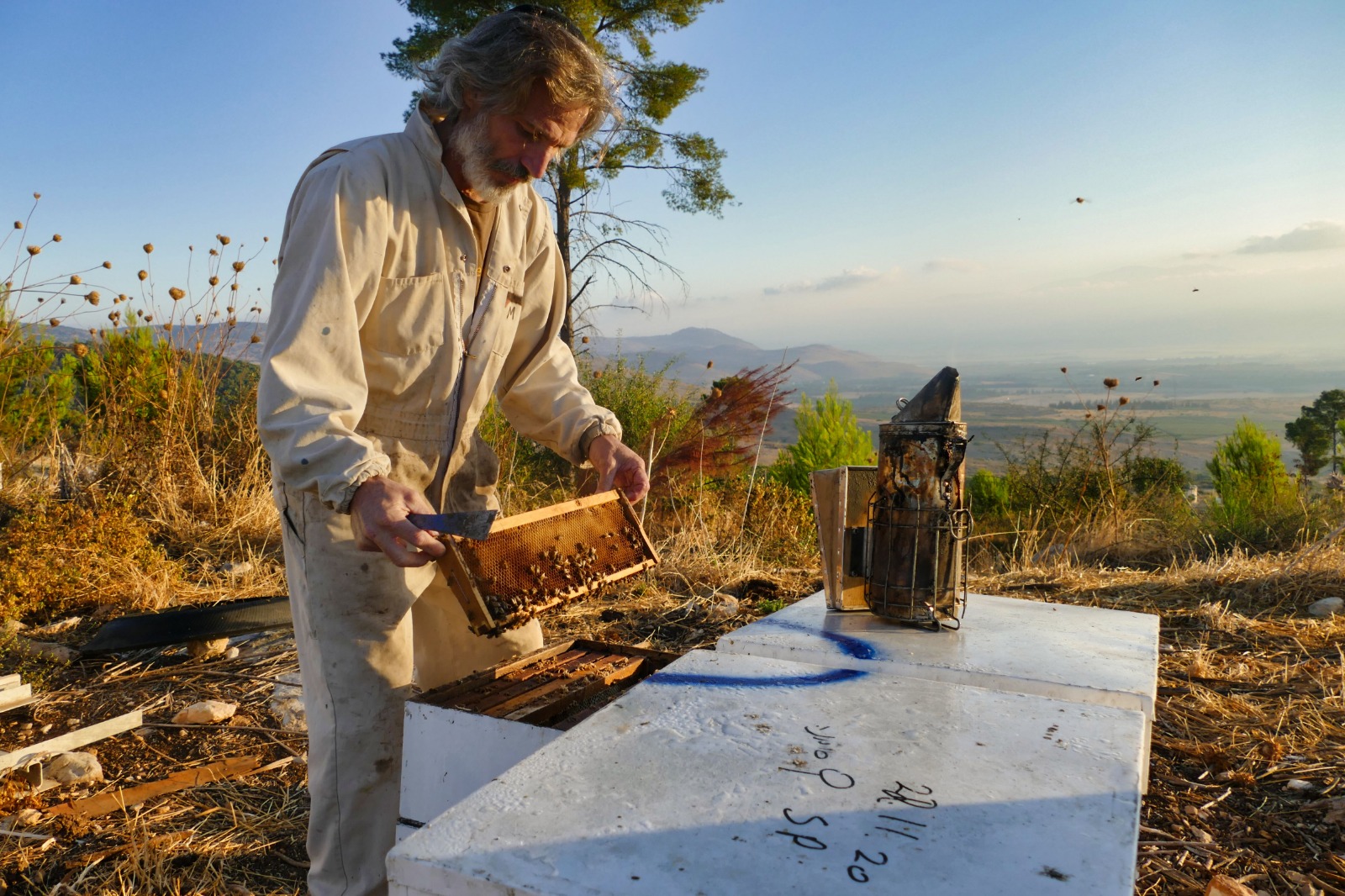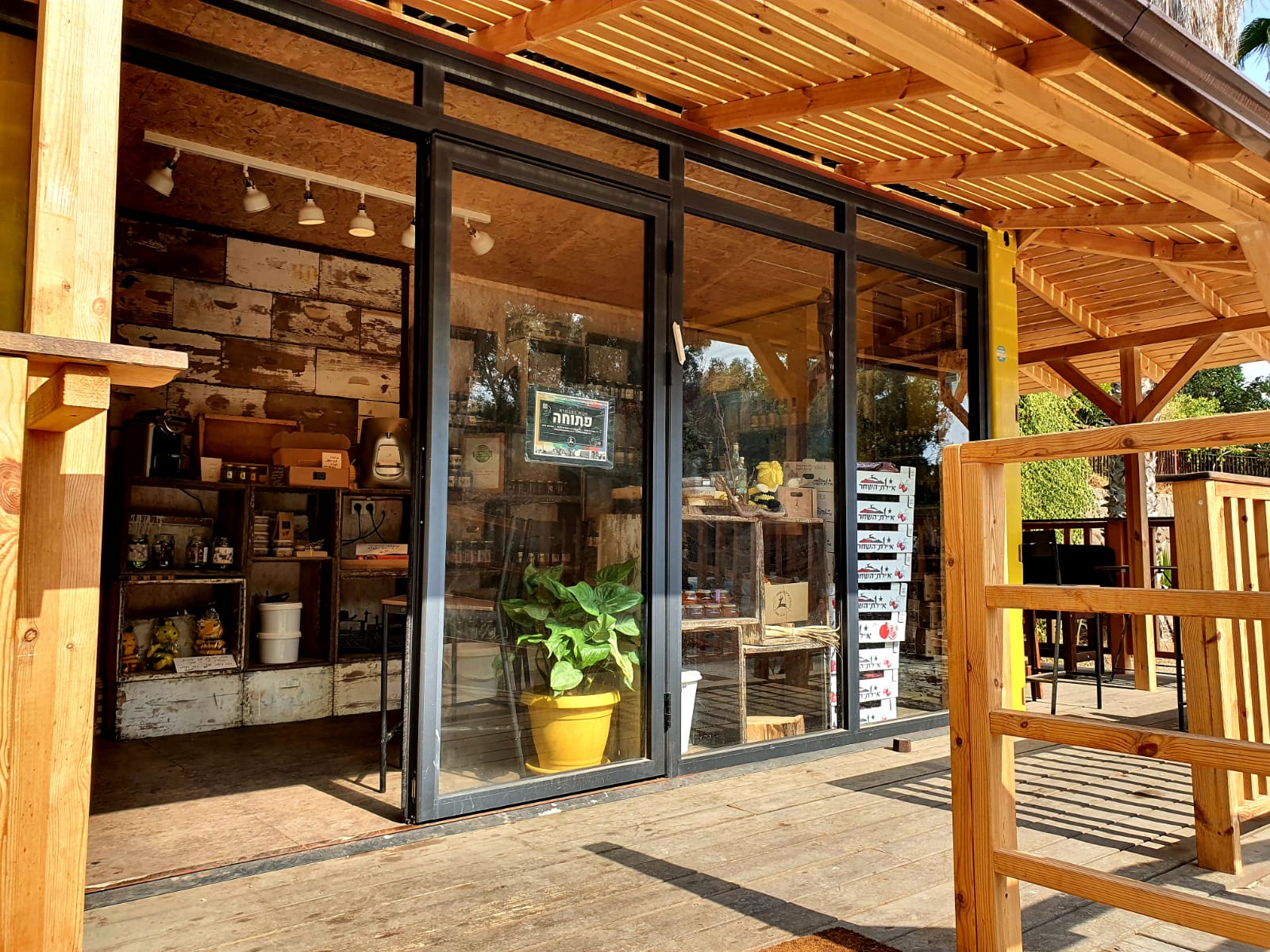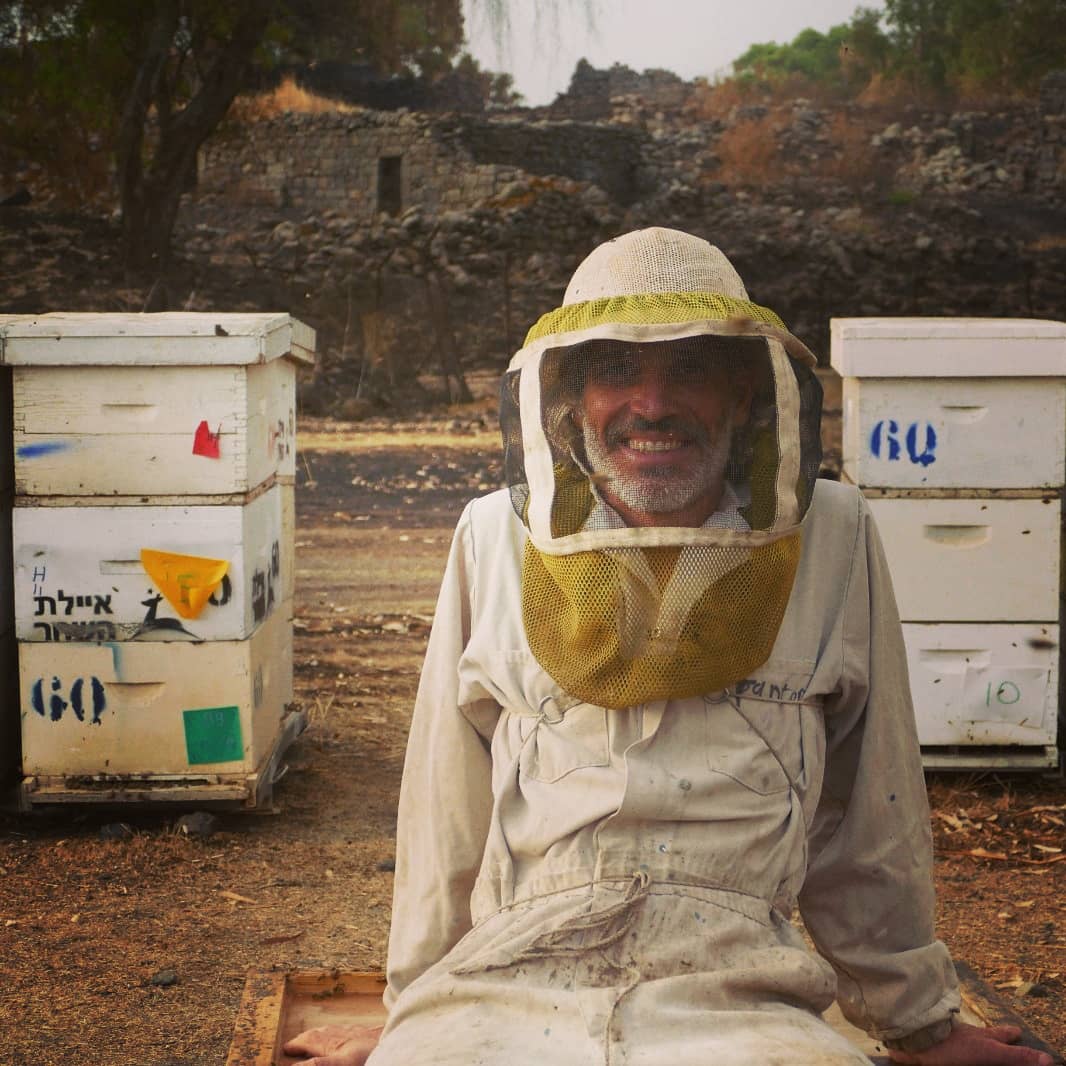What Connects Beekeepers and Honi HaMe'agel? A Surprising Interview with a Beekeeper
Beekeepers Telem Galili and Ehud Levy initiate a unique prayer at the tomb of Honi HaMe'agel. Learn why they believe honey is crucial to the Israeli economy, what their daily routine looks like, and how they deal with constant stings.
 Beekeepers Telem Galili and Ehud Levy
Beekeepers Telem Galili and Ehud LevyIn these early days of winter, it is customary to look at fruit and vegetable growers who eagerly await the rains of blessing. They are the ones who feel the need for rain more than anyone. Perhaps it is surprising then to hear about two beekeepers from Kibbutz Ayelet HaShahar – Telem Galili and Ehud Levy, who are organizing these days a prayer of many beekeepers from all over the country gathering together at the tomb of Honi HaMe'agel.
"This is not the first time we hold such a prayer," says Galili. "We come to the tomb of Honi HaMe'agel every year, hold a large feast, ask and pray for rains of blessing and for our livelihood."
But what is the connection between bees and the weather?
"The connection is direct. The bees are in nature and their pasture area is in the meadows and wild fields. For them to develop and give us high-quality honey, we need good weather. A winter without rain directly affects the honey crop, but even with heavy rains and freezing, it can be harmful. Our honey success is entirely dependent on the elements. The honey crop in the hive can range from 15 to 50 kilos per year, all depending on the weather."

Stung and Keeps Working
Galili was born in Kibbutz Ayelet HaShahar, a third-generation beekeeper. "My parents worked in Ayelet HaShahar beekeeping," he says, "and also my grandmother worked as a beekeeper for thirty years. It is very hard work, but my grandmother was strong. My children are the fourth generation of beekeepers. By the way, my daughter participated about four years ago in a world competition for young beekeepers in Prague."
The work, he says, is not easy. "It is manual labor done under the open sky," he details, "You have to carry hives and work in the sun or rain for hours. You also must have communication and empathy towards people to maintain your team over the years, and there are also disappointments. For example, when a certain experiment you did with the bees doesn't succeed, or when sprays harm the hives, or when agricultural thefts occur. Sometimes you commit to a certain amount of honey, and in the end, there's a dry season and the yield is low."
And what gives you strength in such times?
"First of all, the team of workers, which is like family, and my partner who has been working with me for 15 years. Thanks to him, I have someone to debate and consult with. But more than anything, I gain strength from the satisfaction in the work. Because coming every morning, opening hives, and seeing bees in a vital state – this is something that gives strength every single day. Not only do I say this, everyone who works with bees can attest to that."

Does it happen that you get stung at work?
"Certainly. I get stung every day and am only pleased about it because the stings are considered medicinal. Today there is high awareness on this subject, and people all over the country use stings to heal. People with autoimmune diseases come to us seeking to be stung. They testify close up that although the sting hurts, they feel a significant improvement afterward. Beyond that, dealing with the pain is something important for the body and strengthens it. By the way, I still feel pain every time I'm stung. It's not that experience gives me immunity, but it doesn't stop me from working. I take a deep breath and continue to work."
Seeing the Wonders of Creation
Galili notes that working with bees is essentially traditional work. "Although it progresses over the years and there are technologies that didn't exist before," he clarifies, "Despite the great development, the work is still done by hand and on the ground. In fact, it's work that requires a lot of faith because in the end, nothing depends on us. We only establish the hives, and the honey yield that will be is entirely from the heavens."
What does your workday look like?
"As a beekeeper, my job is to learn about the lifestyle of bees and their ability to communicate. Because in each hive there are tens of thousands of bees and you must ensure each one knows what job to do. Every day I get up before dawn, drive from hive to hive, and perform various actions to improve the bees' lives so they'll be healthy, happy, and vital. Alongside caring for my private hive, I also need to see the entire picture of all 1500 hives scattered in the Golan and the Galilee about 40 kilometers apart. Each area has its needs, and the hive care changes in each season."

Personally, Galili highlights his great connection to the work. "1500 hives sound like a lot, but actually we're considered not large producers, intentionally not expanding beyond that, because it is important for us to maintain honey quality. We produce ten different kinds of honey, including premium honey, and enjoy seniority of 101 years, which grants us a lot of experience."
Galili does not work alone. "We are a team of eight people, and we also have two foreign workers," he notes, "Even as an owner, I do not give up going out to the hives. I feel it's a great privilege to see the wonders of creation up close because a bee is such a small creature, yet so smart. According to numeric data, it contributes to the agricultural crop pollination in Israel between 2.5 and 4 billion shekels, and worldwide, its contribution is estimated at billions of dollars. Not only does it produce honey, but it also improves and enriches additional crops from pepper and melons to watermelons, plums, and nectarines. Farmers use bee pollination for a better and higher quality yield. Personally, I am amazed and excited each time anew to see the wonders of creation. Working with bees is a gift from the heavens, and I am grateful for this privilege."

